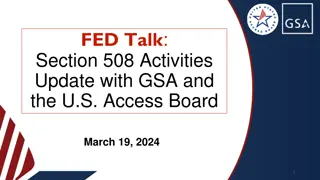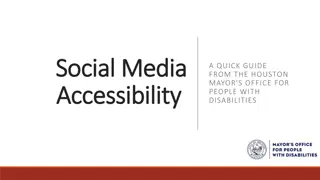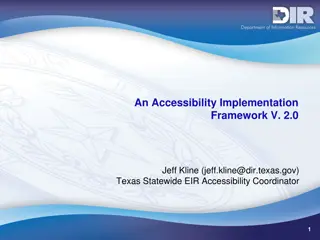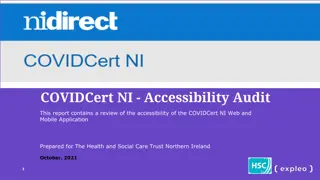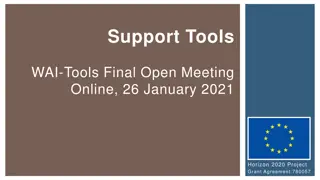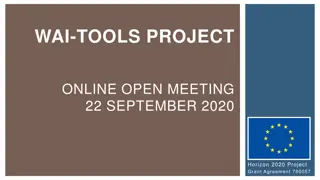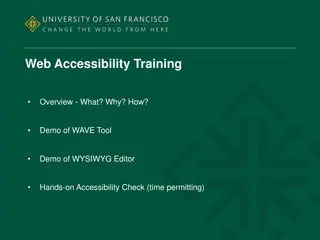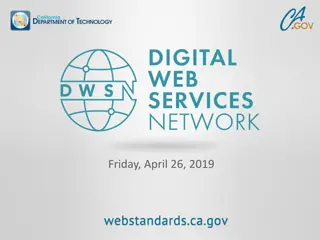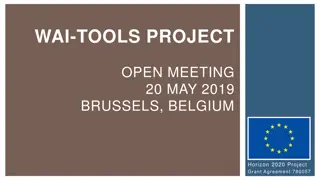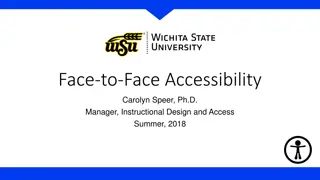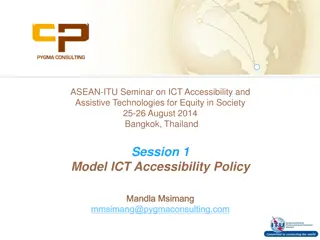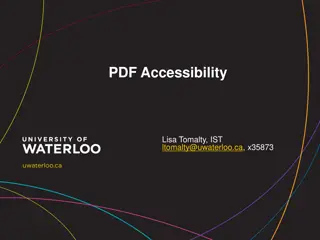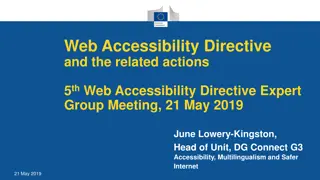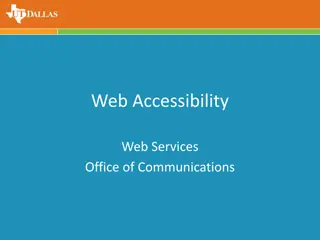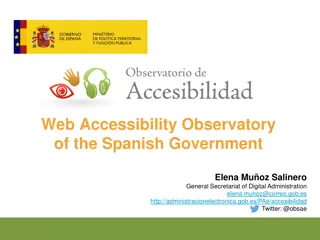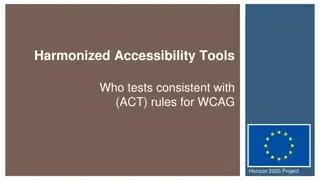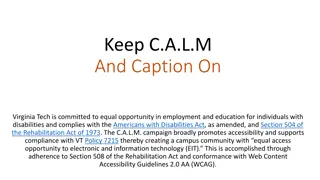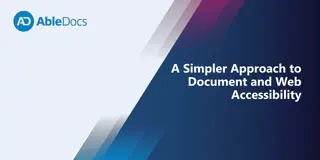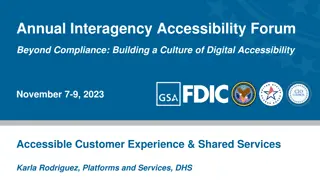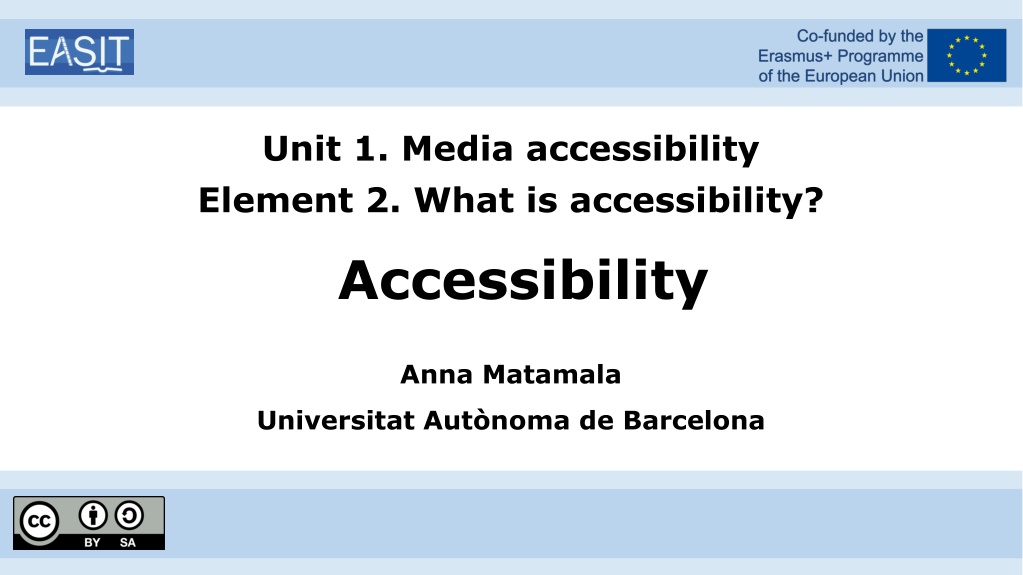
Understanding Media Accessibility: What You Need to Know
Explore the concept of accessibility in media beyond disabilities, covering various types and definitions. Learn about the universalist approach, accessibility vs. usability, and the shift from disability to capabilities. Discover the importance of personalization and customization in enhancing accessibility.
Download Presentation

Please find below an Image/Link to download the presentation.
The content on the website is provided AS IS for your information and personal use only. It may not be sold, licensed, or shared on other websites without obtaining consent from the author. If you encounter any issues during the download, it is possible that the publisher has removed the file from their server.
You are allowed to download the files provided on this website for personal or commercial use, subject to the condition that they are used lawfully. All files are the property of their respective owners.
The content on the website is provided AS IS for your information and personal use only. It may not be sold, licensed, or shared on other websites without obtaining consent from the author.
E N D
Presentation Transcript
Unit 1. Media accessibility Element 2. What is accessibility? Accessibility Anna Matamala Universitat Aut noma de Barcelona
Overview The notion of accessibility and beyond.
Types of accessibility Audiovisual text Written text Physical Cognitive Sensorial Web Performing arts Museum Linguistic Social
Different definitions EN 17161:2019 standard ISO/IEC TR 29156:2015 ISO 11620:2014
Universalist approach Accessibility no longer considered to concern exclusively or mainly specific groups of persons with disabilities, but all human beings.
Accessibility & usability Usability: Extent to which a product can be used by specified users to achieve specified goals with effectiveness, efficiency and satisfaction in a specified context of use (ISO 9241-11 standard)
Questions From disability to capabilities From accessibility to personalisation and customisation
Pictures Source: pixabay.com, publicdomainvectors.org, stockfreeimages.com License: Pixabay License, CC0
Anna Matamala anna.matamala@uab.cat
Acknowledgement The project EASIT has received funding from the European Commission under the Erasmus+ Strategic Partnerships for Higher Education programme, grant agreement 2018-1- ES01-KA203-05275.
Disclaimer The European Commission support for the production of this publication does not constitute an endorsement of the contents, which reflect the views only of the authors, and the Commission cannot be held responsible for any use which may be made of the information contained therein.
EASIT EASIT (Easy Access for Social Inclusion Training) Logo pagines.uab.cat/easit



